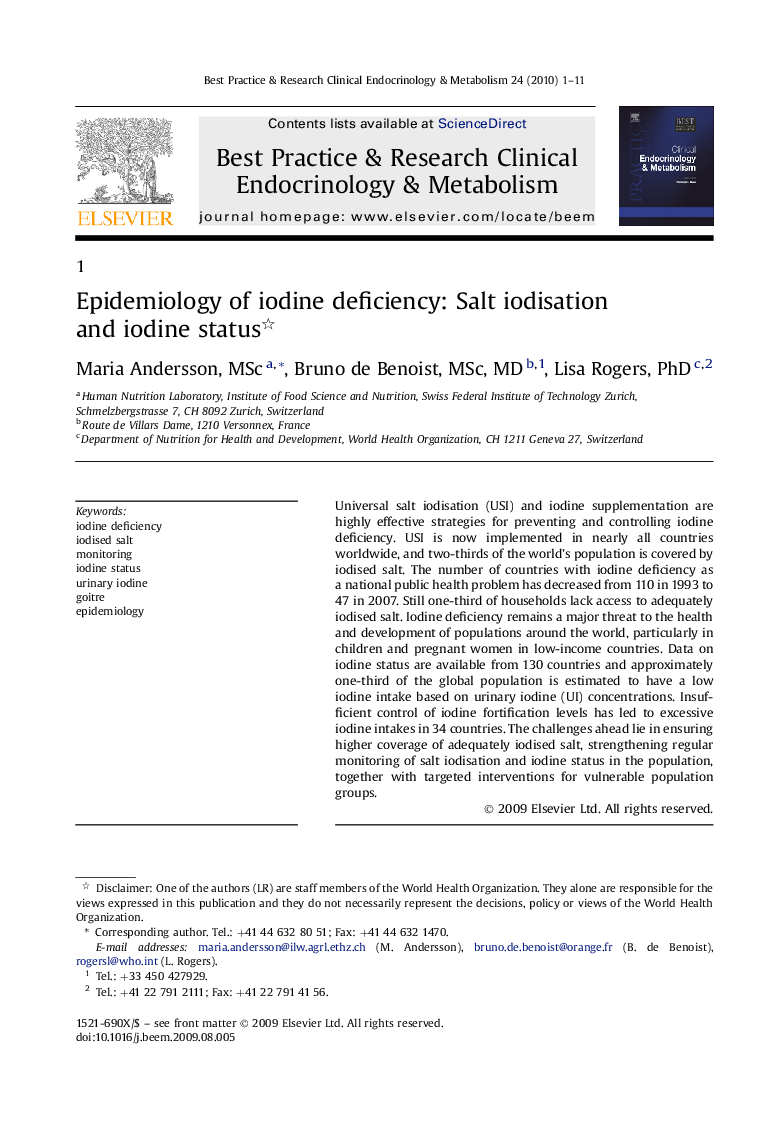| Article ID | Journal | Published Year | Pages | File Type |
|---|---|---|---|---|
| 2791994 | Best Practice & Research Clinical Endocrinology & Metabolism | 2010 | 11 Pages |
Universal salt iodisation (USI) and iodine supplementation are highly effective strategies for preventing and controlling iodine deficiency. USI is now implemented in nearly all countries worldwide, and two-thirds of the world's population is covered by iodised salt. The number of countries with iodine deficiency as a national public health problem has decreased from 110 in 1993 to 47 in 2007. Still one-third of households lack access to adequately iodised salt. Iodine deficiency remains a major threat to the health and development of populations around the world, particularly in children and pregnant women in low-income countries. Data on iodine status are available from 130 countries and approximately one-third of the global population is estimated to have a low iodine intake based on urinary iodine (UI) concentrations. Insufficient control of iodine fortification levels has led to excessive iodine intakes in 34 countries. The challenges ahead lie in ensuring higher coverage of adequately iodised salt, strengthening regular monitoring of salt iodisation and iodine status in the population, together with targeted interventions for vulnerable population groups.
